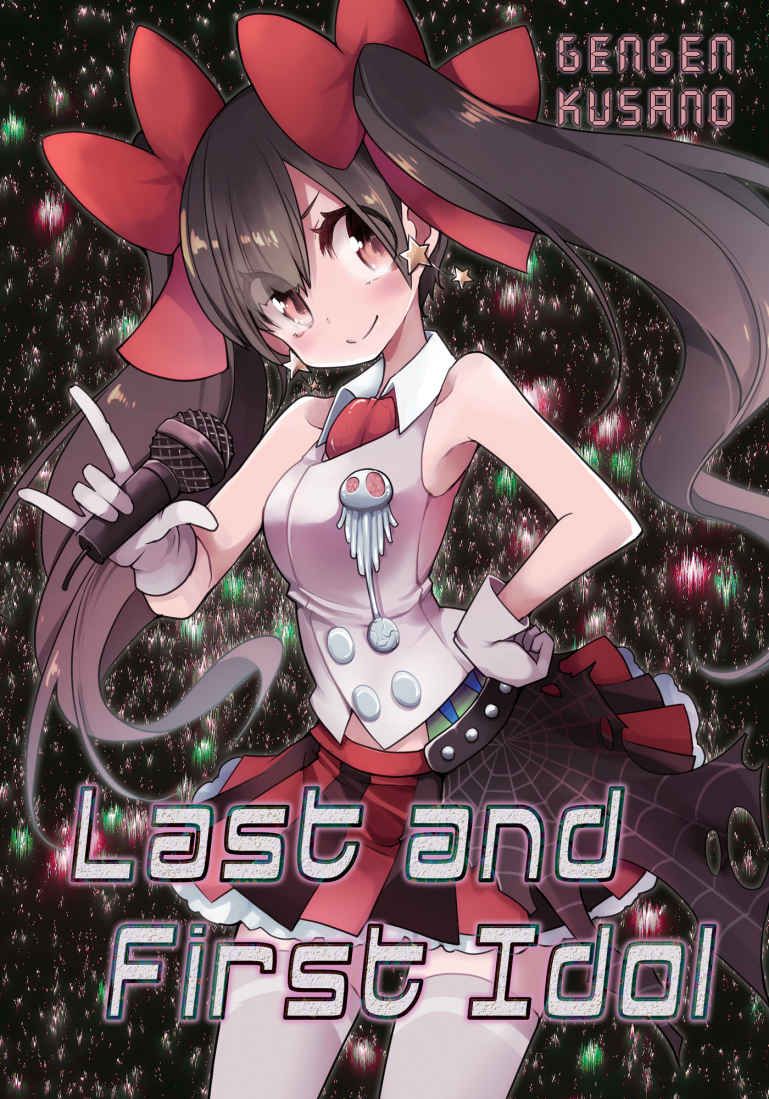Books: Last and First Idol
August 21, 2019 · 0 comments
By Jonathan Clements.
 For the second year in a row, Gengen Kusano managed to cause a stir at the Seiun Awards, clambering ahead of the competition to secure the prize for best short story for his tale “Dark Seiyuu”. Unless I’m much mistaken, he added another achievement to his resumé by becoming the first Japanese science fiction author to win the field’s highest prize with a story that has already been published in English.
For the second year in a row, Gengen Kusano managed to cause a stir at the Seiun Awards, clambering ahead of the competition to secure the prize for best short story for his tale “Dark Seiyuu”. Unless I’m much mistaken, he added another achievement to his resumé by becoming the first Japanese science fiction author to win the field’s highest prize with a story that has already been published in English.
The collection Last and First Idol was released in an English e-book format last year, and sneaked out in a paperback edition shortly before Kusano won his second Seiun. It contains three stories, including both the Seiun Award winners from 2018 and 2019, as well as a joyously irreverent afterword by Satoshi Maejima that lists many of Kusano’s worst reviews. This is, after all, the man whose first story was described by a representative of his own publisher as “abysmal”, and by an awards panellist as “stupid”. When he won his first Seiun with his debut story, mere months after it appeared online, the distinguished author Chohei Kanbayashi was heard to wonder if there hadn’t been a terrible mistake.
“Last and First Idol” taunts the reader with a vapid opening chapter about a school for would-be idol singers, before suddenly veering off-course with the suicide of a failed pop-star. Mika Furutsuki hurls herself from a rooftop, but her brain is extracted by trainee surgeon Maori Niizono, and preserved during a series of disastrous world-changing events, including a solar flare and the collapse of human civilisation as we know it. Resurrected in a cyborg body in the future, Mika finds herself inadvertently equipped to survive in the newly hostile environment, but also to stay alive and adapt through multiple incarnations over the next trillion years or so.
Kusano embarked upon a deliberate mash-up of two incompatible genres – a breathless teen novel and a pompous space opera – turning each into a commentary on the preposterousness of the other, as if a bimbo drop-out from Love Island were asked to recount the plot of Olaf Stapledon’s Last and First Men. Stapledon’s 1930 book, notably, was not translated into Japanese until 2004, suggesting that Kusano’s inspirations were drawn from the cutting edge of fiction in Japanese translation. Anime fans will also notice a few similarities with Puella Magi Madoka Magica (2011), which similarly clashes two seemingly incompatible modes of story-telling.
But that’s not what annoyed so many in Japanese fandom. There was certainly an element of sour grapes at the rookie author who won the top award with his debut professional work, but beyond the sheer speed with which Kusano made it to the top, there was a degree of grumbling about how he’d done it. Mere months before “Last and First Idol” was nominated for the Seiun, it had previously appeared in an amateur press publication called School Idol Fictionally, where its true colours were revealed as a work of Love Live! fan fiction. Kusano’s original took a degree of icky glee at describing the sudden death of the idol Nico Yazawa, a gruesome operation to salvage her organs, and her subsequent transformation into a super-being with godlike powers.
Even then, it seems unfair to hate “Last and First Idol” just because it started off as fan-fiction. One only needs to look at the careers and inspirations of the likes of Hiroshi Yamamoto and Katsuhiro Otomo to known that repurposing of much-loved anime or manga has a long and noble tradition in the Japanese SF community. Last and First Idol, translated by Andrew Cunningham and available from J-Novel Club, collects the award-winning title story as well as the similarly garlanded “Dark Seiyuu” and a third story, “Evolution Girls”. All three of them follow a broadly similar template, in which a teenage girl is viscerally and often fatally transformed into a higher being, while huge, world-altering natural disasters and technological developments happen like background noise. Since so little of Kusano’s fiction has been translated into English (or, indeed, written yet), it is difficult to tell whether these three stories are a sign of a one-trick pony unable to break out of a single wry formula, or merely the early works of an author still finding his feet. Certainly, elements of Last and First Idol often seem less like a story than an author’s swiftly jotted notes of what a story might become, but the sheer inventiveness with which he off-handedly strips the Earth’s atmosphere away, leaps a billion years into the future, or posits the invention of weaponised nerve endings shows that he has an incredible science fictional mind, possibly fighting to escape from clunky teenage prose… or possibly loving every minute of it.
Jonathan Clements is a contributing editor to the Encyclopedia of Science Fiction. Last and First Idol is published in English by J-Novel Club.
Leave a Reply